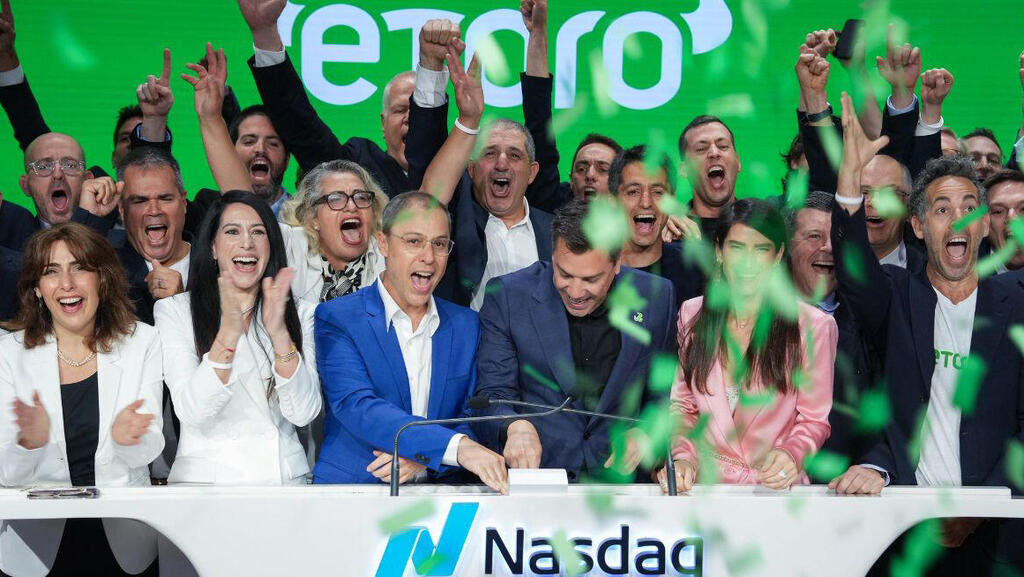
Fintech finds its floor as Melio sells amid market reset
The Israeli startup opts for acquisition over IPO, signaling realism in the sector.
After three years in which fintech was marginalized due to market malaise and high interest rates, a shift in sentiment has become evident in recent months. Although interest rates in the U.S. have not yet begun to fall significantly, investors are already reacting to former President Donald Trump’s public criticism of the Federal Reserve chairman for not cutting rates more aggressively. Many sense that rate cuts are coming soon. High interest rates have hurt fintech companies by increasing the cost of capital, reducing borrowing, and shrinking consumer disposable income.
Fintech has not yet reclaimed the spotlight from AI or cybersecurity, but on the global unicorn list, fintech companies still account for nearly half - led by Stripe, which offers services similar to Melio, and the digital wallet Revolut. Fintech also represents about half of the most valuable Israeli unicorns, a group Melio departed on Wednesday, including top-tier companies such as Rapyd and Tipalti, whose business models overlap in part with Melio’s.
The major question is how the valuations these companies achieved during the zero-interest-rate era, which ended in 2022 and is unlikely to return anytime soon, compare to their current real-world values. In the meantime, it appears that after a period of stagnation and waiting for better days, fintech investors now realize that the extraordinary valuations of that era are gone for good. As expectations recalibrate, this return to realism is sparking increased activity in the market, certainly more than we've seen in the past three years.
Melio’s exit comes just months after the sale of Next Insurance, also part of the fintech world, for $2.6 billion to German insurance giant Munich Re. Like Melio, Next was sold at a lower valuation than its previous funding round ($4 billion), but still retained unicorn status and a reasonable revenue multiple. Outside Israel, AvidXchange was acquired by investment firm TPG for $2.2 billion this past May.
On Wall Street, the fintech IPO market is also experiencing a revival. Some observers are already calling it a “wave,” although it’s still too early to determine whether the excitement is across the broader fintech space or limited to crypto. Israel is also participating in this revival with the IPO of eToro, a trading platform that became the first to benefit from Trump’s tariff policy, which allowed it to expand its reach. The company has undergone a valuation reset to align with market expectations and debuted on Nasdaq with strong demand, reaching a valuation of around $5 billion. While high, that’s still below the $10 billion valuation it aspired to in 2021.
Related articles:
The positive momentum is further supported by the renewed IPO plans of Navan (formerly TripActions), which manages corporate travel budgets. Its previous IPO attempt, shelved in 2022, had targeted a $12 billion valuation. But the biggest fintech standout is Circle, a crypto-focused firm, which has surged 700% since its May IPO and is now trading at a $54 billion valuation. Last week, payments company Chime also went public and is now valued at $10 billion. All eyes are now on Klarna, the Swedish payments giant, whose long-awaited IPO could mark the definitive resurgence of the fintech sector. Like eToro, Klarna postponed its offering amid tariff uncertainty and has yet to reveal a new date.
One explanation for this fintech revival is that most unicorns in the space have reached maturity, with relatively high revenues, often far surpassing those of cybersecurity companies, which typically scale more slowly. For instance, both eToro and Navan are now approaching $1 billion in annual revenue, comfortably exceeding the informal $300 million revenue benchmark expected by today’s Nasdaq investors.
This, incidentally, may explain Melio’s decision to sell. While growing, its annual revenue is around $200 million and it is not yet profitable, factors that make a public offering unlikely in the near term. The acquisition offer from New Zealand’s Xero was below Melio’s peak valuation from the 2021 funding boom but in line with its most recent capital raise. In that context, the deal represents a pragmatic exit in a volatile and competitive market.
